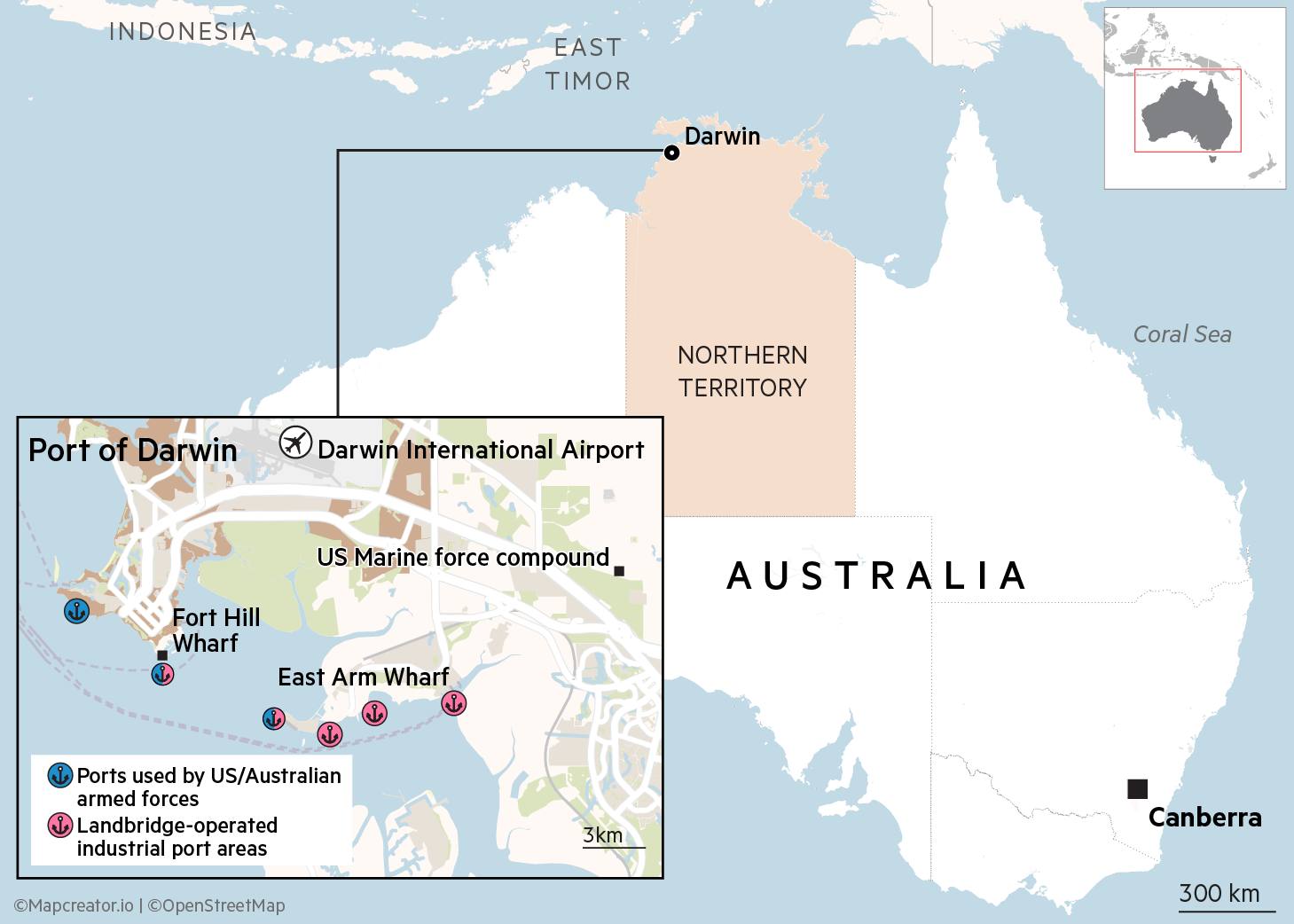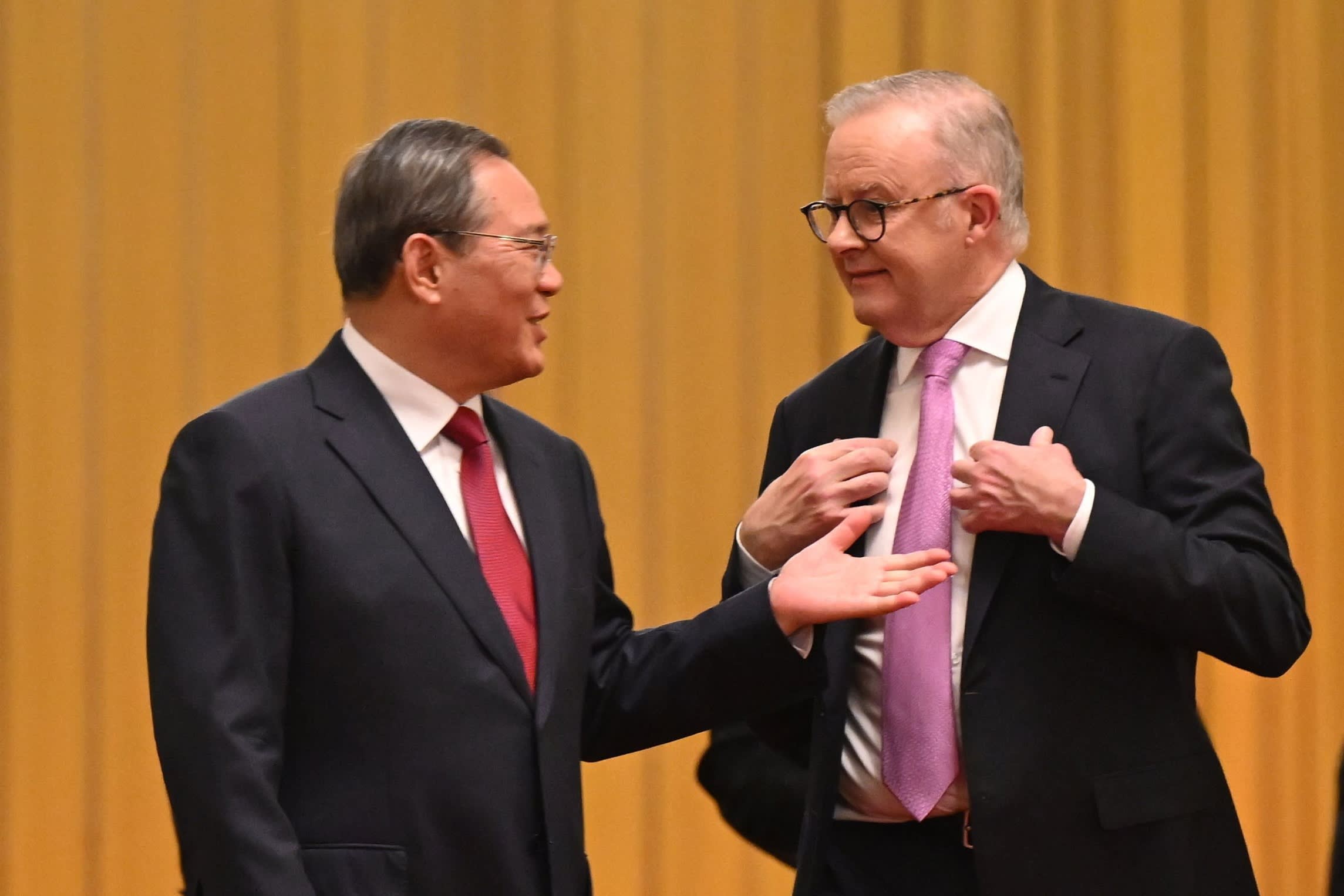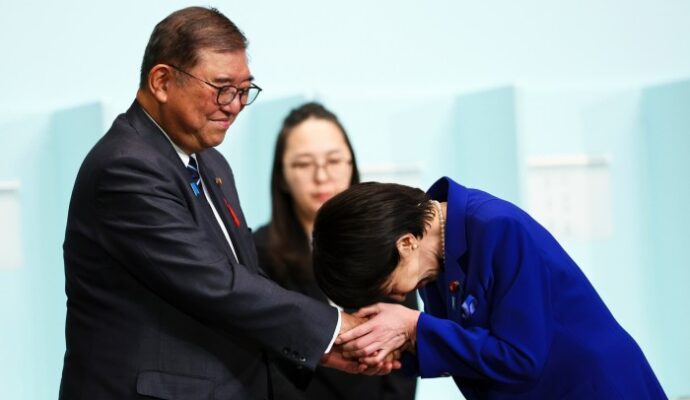One of Anthony Albanese’s biggest achievements as Australia’s leader has been repairing economic ties with China. But the prime minister is now seeking to undo one contentious link with his country’s biggest trading partner: ownership of the strategic Darwin Port.
Albanese, speaking before he was re-elected in May, said his party had opposed the 2015 decision by the Northern Territory regional government to “flog off” the port to Chinese shipping company Landbridge under a A$504mn ($333mn), 99-year lease.
“Obviously we live in an uncertain world at the moment, the idea that you would have the major port in northern Australia owned by any foreign interest is not in Australia’s national interest,” he said.
The prime minister’s pledge during the election campaign to restore the port to Australian hands — mirrored by the opposition Liberal party — reflects the widespread concern in Australia about China’s growing military presence in the Pacific.
It also comes amid pressure from Washington, Canberra’s most important ally, to secure control of the port in northern Australia, the country’s closest launching point to the contested waters of the South China Sea. The port is located near a US marine base and some of its docks are used by American and Australian naval vessels.
But vows to claw back ownership of Darwin Port have sparked objections from Beijing and criticism from the Northern Territory.
John Elferink, the territory’s attorney-general at the time of the sale, dismissed the debate as “rampant political opportunism” and ridiculed suggestions that the port could be used to spy on US military operations.
“Darwin wharf has lots of coffee shops. You can buy a cappuccino and get a better view of the US warships than from the port,” Elferink said.

Elferink added that the Northern Territories had little choice but to lease out the port as the territory could not afford the substantial investments required. “In some places it was sinking,” he said.
Last month, Chinese premier Li Qiang called for his country’s companies to be treated properly, in a pointed comment that slightly soured the diplomatic bonhomie of Albanese’s six-day tour of China,
“We hope that the Australian side can provide a fair, open, and non-discriminatory business environment for Chinese enterprises in Australia,” Li said.
Xiao Qian, China’s ambassador to Australia, said in May that Landbridge had invested heavily in successfully turning around the port over the past decade. “It is ethically questionable to lease the port when it was unprofitable and then to seek to reclaim it once it becomes profitable,” he told Australian broadcaster ABC.
Friendly ties with China meant there was little objection to the sale in 2015, and the country’s Foreign Investment Review Board approved it as fast as a “Formula 1 car passing the finish line”, Elferink said.
Geopolitical tensions, stoked by Beijing’s assertive campaign to press its territorial claims in the South China Sea, prompted then-US president Barack Obama in 2015 to raise concerns about not having been consulted on the deal.
Albanese’s government reviewed Landbridge’s ownership of the lease in 2023, but opted against cancelling or amending it at a time when Canberra was trying to repair trade relations Beijing.
But concerns over the port’s ownership continued to grow. Landbridge is controlled by billionaire Ye Cheng, who was a member of the national committee of the Chinese People’s Political Consultative Conference, a political advisory body, from 2013 to 2018.

In 2021, the Labor party, then in opposition, alleged that Landbridge had “extensive connections” to the Chinese Communist party and People’s Liberation Army, warning that the lease “compromised Australia’s long-term strategic security”.
It added that the defence ministry was notified of the lease only “a few hours” before it was signed.
Raelene Lockhorst of the Australian Strategic Policy Institute’s national security programme, said Chinese naval exercises 150 nautical miles east of Sydney in February had prompted renewed focus on the port and security concerns. The following month, the USS Minnesota, a nuclear-powered submarine, passed through Darwin.
Lockhorst said countries such as Australia had to balance competing demands from China and the US as geopolitical tensions increased.
She pointed to Hong Kong-based CK Hutchison’s proposed sale of Panama Canal ports to Swiss-Italian Mediterranean Shipping Co and BlackRock following pressure from US President Donald Trump over alleged Chinese influence at the vital waterway. “It’s a pattern that is happening,” she said.
A report in The Australian newspaper has linked US private equity group Cerberus with a potential Darwin Port takeover along with logistics company Toll Group, which is owned by Japan Post. Both companies declined to comment on a potential bid.
Albanese has also said that he has held discussions with Australia’s powerful pension funds over the future of the port.
Landbridge’s earnings before interest, tax, depreciation and amortisation rose 46 per cent last year to A$34mn, up from A$23mn in 2023, due to increased activity at the port. It however recorded a A$34mn pre-tax loss last year due to intra-company loan repayments. It has previously said that it has no intention of selling the port.
Terry O’Connor, non-executive director for Landbridge in Australia, said in a statement that it was “business as usual at Darwin Port”.
“Landbridge awaits advice from [the] government on their position,” he said.
The company did not respond to requests for comment about its alleged links to China’s military and ruling Communist party.
Albanese said during his China tour that his government has been “very clear” on its intentions for the port. But he has not explained how Canberra intends to ensure Landbridge complies with a return to Australian ownership.
Elferink noted that the Chinese company was now in a strong negotiating position. He added that the decision to make the ownership transfer an election pledge might prove a mistake. “Why would you go into a poker game, lay your cards down on the table face up and then lay your bets?” he said.
Additional reporting by Wenjie Ding in Beijing


